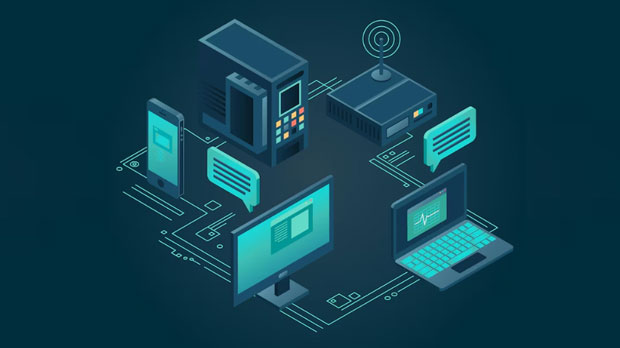The rise of static residential proxies has brought a wave of positive reviews due to their reliability and functionality for various use cases such as web scraping, data gathering, and anonymous browsing. However, it’s important to evaluate whether these proxies perform consistently across different geographic regions. According to a recent PYPROXY review, some areas experience suboptimal performance when using static residential proxies. This article delves into the reasons behind such variations, assessing factors such as network congestion, geographical restrictions, and regional internet infrastructure. By identifying these key issues, businesses and individuals can better navigate proxy use and optimize their strategies. Understanding Static Residential Proxies: A Brief OverviewStatic residential proxies are IP addresses provided by Internet Service Providers (ISPs) to real residential locations. Unlike datacenter proxies, which are often flagged and blacklisted, static residential proxies come with a sense of legitimacy and authenticity. They mimic the behavior of normal residential internet users, offering advantages such as better anonymity, lower chances of being detected, and enhanced reliability. These proxies are commonly used in a variety of online activities, including social media automation, e-commerce scraping, and content access.One of the core features of static residential proxies is that they provide a fixed IP address that remains consistent over time, unlike dynamic residential proxies which can change their IP address frequently. This consistency makes them appealing for tasks that require prolonged sessions or ongoing access to certain services.PyProxy Review: Performance in Different RegionsPyProxy, a popular tool for evaluating proxy performance, provides valuable insights into how proxies perform in different regions. The review reveals that static residential proxies do not always perform equally well across the globe. The performance discrepancies can be attributed to several regional factors.1. Geographical Restrictions and Regulations Some regions impose stringent regulations on internet usage, affecting the speed and functionality of proxies. In countries with tight internet censorship or high levels of surveillance, static residential proxies may face blocking or throttling. This is especially common in areas like China, Russia, and parts of the Middle East where strict government controls limit internet traffic. Additionally, some countries have particular IP ranges that are frequently used by proxies, which can lead to blacklisting of residential IP addresses from those regions. This can significantly impact the performance of static residential proxies, making them unreliable for users in those areas.2. Network Infrastructure and Congestion The quality of internet infrastructure varies greatly from one region to another. In more developed countries, internet speeds are generally faster and more stable, which can result in better performance for static residential proxies. However, in developing regions or areas with less robust infrastructure, proxies can experience slower speeds, higher latency, and intermittent connectivity. Congestion is another important factor that impacts the efficiency of proxies in certain areas. Overloaded networks, particularly in densely populated cities, can lead to proxy performance issues, as the residential IP addresses may be routed through congested or overloaded network paths.Factors Affecting Static residential proxy PerformanceIn addition to geographic and network factors, there are several other elements that can influence the performance of static residential proxies. These include:1. ISP Limitations Static residential proxies are sourced from specific ISPs, and the quality of service provided by these ISPs plays a significant role in determining the effectiveness of the proxies. Some ISPs may not have reliable or fast connections in certain regions, leading to degraded proxy performance. Additionally, some ISPs may impose restrictions on their residential IP addresses to prevent misuse, which could result in connection issues for users.2. IP Address Pool Size The size of the IP address pool can also affect the performance of static residential proxies. In regions with a smaller pool of residential IPs, proxies may be more easily flagged or detected, leading to potential issues like IP bans, reduced anonymity, or slower speeds. On the other hand, areas with a large pool of IPs tend to offer better proxy performance, as the IP addresses are less likely to be flagged or blocked.3. Proxy Provider Quality The quality of the proxy provider itself is another critical factor. Some providers have optimized their services for specific regions, ensuring that their static residential proxies perform consistently well in those areas. However, not all providers are equal, and the lack of proper infrastructure or poor IP sourcing practices can lead to unreliable performance, especially in certain regions.Case Studies: Regions with Notable Proxy Performance IssuesTo further understand how static residential proxies perform across different regions, let’s look at a few case studies of regions where users have reported performance issues.1. Asia – High Congestion and Governmental Restrictions In some parts of Asia, particularly in countries like China and India, the use of proxies can be hindered by both governmental restrictions and network congestion. In China, where internet access is heavily censored and monitored, many residential proxies are blocked or throttled. In India, rapid urbanization and high population density often result in network congestion, making it difficult to maintain fast and stable proxy connections.2. Europe – Mixed Results Based on Location In Europe, the performance of static residential proxies can vary significantly. In Western Europe, countries like Germany, the UK, and France generally offer strong internet infrastructure and stable connections. However, in Eastern Europe, some countries face slower internet speeds and less robust residential IP offerings, which can impact proxy performance. Furthermore, countries with strict data protection laws, such as Germany, may also limit the use of certain types of proxies.3. North America – Generally Reliable with Exceptions North America, particularly the United States and Canada, tends to offer reliable static residential proxy performance. These countries have advanced internet infrastructure, which supports stable proxy connections. However, in rural or less populated areas, users may experience slower speeds or occasional disconnects due to limited ISP coverage or regional network congestion.How to Optimize Static Residential Proxy Performance in Problematic RegionsFor users operating in regions where static residential proxies may not perform as expected, there are several strategies to optimize performance:1. Choosing a High-Quality Proxy Provider Selecting a reputable and high-quality proxy provider can make a significant difference in performance. Look for providers that have a diverse and extensive pool of residential IPs, especially from the region you are targeting. Additionally, providers that offer optimized routes and regional support can help ensure better performance.2. Utilizing rotating proxies While static residential proxies offer consistency, rotating proxies (which change IP addresses periodically) can provide additional anonymity and reduce the risk of being blocked. Rotating proxies can also help to bypass regional IP blocks, ensuring continued access to online services.3. Implementing Proxy Pools For users who experience consistent proxy issues, setting up a pool of multiple proxies can help balance the load and ensure smoother browsing or scraping experiences. By distributing traffic across multiple proxies, users can minimize the chances of encountering network congestion or IP bans.In conclusion, while static residential proxies offer many advantages, their performance is not always uniform across different regions. Geographical restrictions, network infrastructure, ISP limitations, and proxy provider quality all play crucial roles in determining how well these proxies perform. By understanding these factors, users can make informed decisions about how to best utilize static residential proxies and take steps to mitigate potential issues in regions where performance may be suboptimal. This proactive approach will ensure a smoother and more effective experience when using proxies for various online tasks.
May 13, 2025


































































